The recent discovery of rabid bats in Chicago, along with World Rabies Day on September 28th, has vets in the area urging pet owners to have their cats and dogs vaccinated to prevent rabies.
This is not an unusual occurrence, Chicago seems to have a history of rabid bats.”Rabid bats are a cause for concern for pet owners,” said Dr. Jerry Klein, the supervising veterinarian at Chicago Veterinary Emergency & Specialty Center and co-winner of America’s Favorite Veterinarian award. “Because bats may enter homes, rabid bats pose a danger to all pets, even indoor cats. Pet owners should make certain that all cats and dogs have up-to-date rabies vaccinations to reduce the risk to pets and people.”
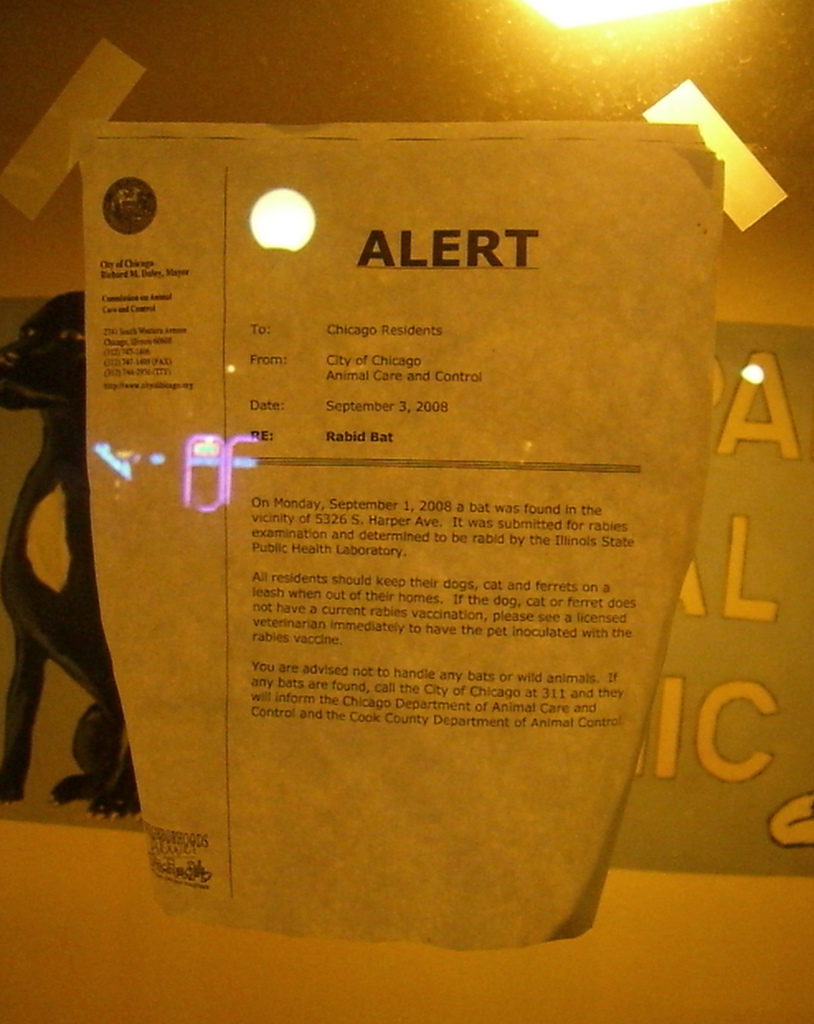
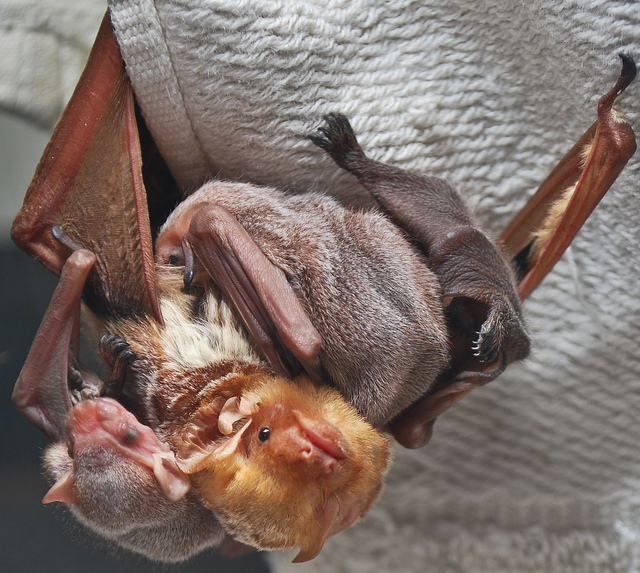
Pet owners are encouraged to contact their regular veterinarian to make certain that their pets are up-to-date on the rabies vaccination, and promptly schedule an appointment for one if they are not.
But some holistic and naturopathic advocates have been telling owners their pets are “over-vaccinated,” with vaccines lasting longer than the industry tells them or that it’s not necessary to vaccinate because their pets are not “at risk” where they live. Some go as far as to say the vaccine itself is causing more harm than good.
We interviewed Dr. Klein to get the answers you need to make sure you are protecting your pet as best as possible. Remember:
There is no cure for rabies.
Many feel that “rabies doesn’t exist anymore” or “I live in the city, when my will my dog come in contact with rabies” – what’s the truth?
Dr. Klein: According to the Center of Disease Control, rabies exists in almost every state. While most animals that contract rabies are wild animals, each year dogs and cats also contract the disease. In fact, before 1960, most rabies cases in the U.S. were found in domestic animals. Today, thanks to widespread use of rabies vaccines for dogs, most cases of rabies are found in wild animals such as raccoons, skunks, coyotes and bats.
One of the bigger concerns in the spread of rabies is bats. In addition to possibly coming into contact with animals outside, they also sometimes get into people’s houses. In Chicago, where I live, multiple bats with rabies have been identified in the past few weeks. That puts our dogs and cats – even ones that stay indoors – at risk. While many people are good about complying with laws that require vaccinations for dogs, it’s important to make certain that both cats and dogs are vaccinated, even if they are indoor animals.
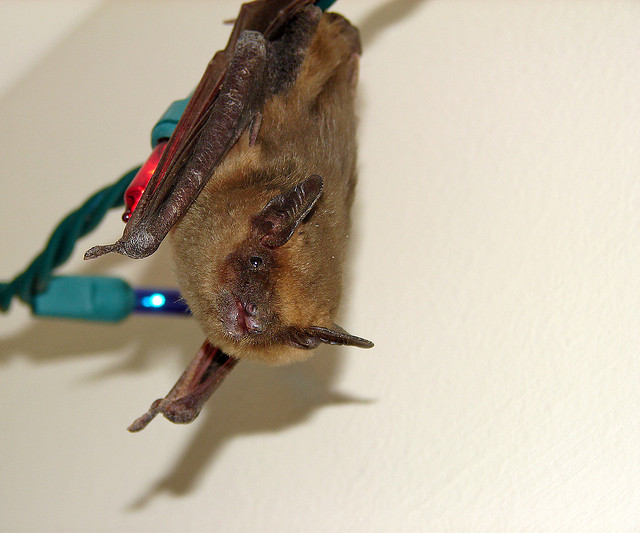
According to the Journal of the American Veterinary Medical Association, in 2013 there were 89 cases of dogs with rabies, 247 cases of cats with rabies and more than 1,500 cases of bats with rabies that were discovered in the US. The only state not reporting cases of rabies was Hawaii.
Once an animal – or person – shows signs of rabies, there is no cure. So, prevention through vaccination is critical.
Just how easy is it for a dog to get rabies from another animals?
Dr. Klein: Rabies is easily spread through saliva. Although most times it will require a bite from one animal to another, because many animals lick their paws, sometimes a scratch is enough to spread the disease. If a dog, or cat for that matter, comes in contact with a rabid bat for example, it may be difficult to know if they were bitten because the bat’s teeth are so small, bite marks are difficult to detect.
Dogs, cats and people should not interact with wild animals. Immediate care should always be sought if you or your pet comes in contact with any wild animal as rabies is a deadly disease. For our dogs and cats, the best protection is the rabies vaccine, which is often required by law. Children, should be reminded to never touch wild animals.
If your pet should come in contact with a wild animal, you should contact your municipality, local government or animal care and control facility as soon as possible.
The Center for Disease Control recommends that an unvaccinated dog or cat that comes in contact with a rabid animal be euthanized.
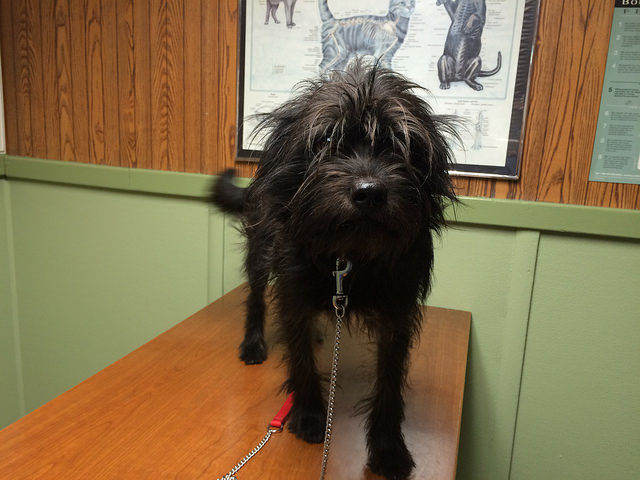
Are there any known risks or side effects to the rabies vaccine?
Dr. Klein: Rabies is an extremely safe vaccine. It has been given for decades without any significant negative effect for most animals. Of course, just like with anything else, there may be an occasional side-effect for a few animals, but those are rare exceptions and generally the side effects are temporary and short lived such as irritation at the site of the injection.
Often, a pet’s first rabies injection is for one year and follow-up injections can be either one year or three duration. As with all vaccines, that’s something that pet owners should discuss with their veterinarian to determine what is best for their pet.
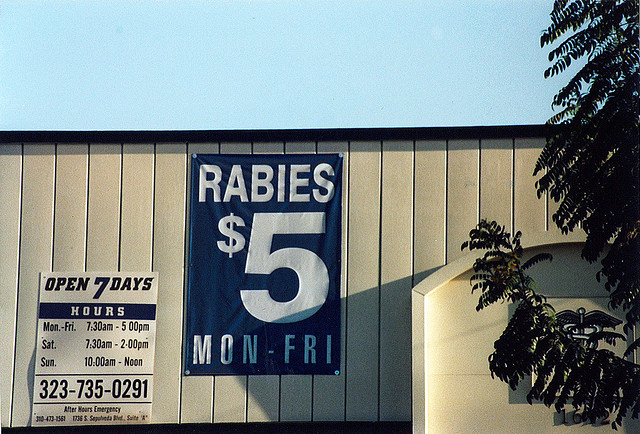
The Bottom Line
As Dr. Klein mentioned, if your dog is unvaccinated and comes in contact with a wild animal that has rabies, the immediate decision is usually to euthanize your dog. With all the risks involved, you should definitely talk to your vet about a rabies vaccine, especially if your dog is overdue. Learn what risks, if any, there are for your dog in getting the vaccine. It could save their life, not just from the disease, but from being automatically euthanized should they come in contact with a wild animal that may be rabid.
